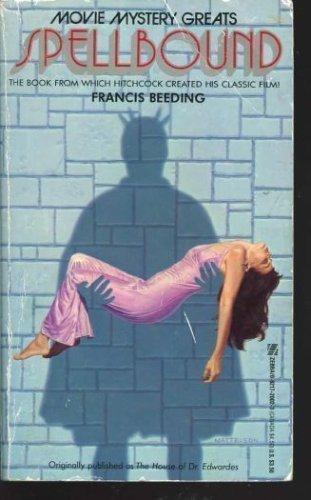
Spellbound PDF
332 Pages·1987·60.6468 MB·other
Most books are stored in the elastic cloud where traffic is expensive. For this reason, we have a limit on daily download.
Preview Spellbound
Description:
The single most
striking quality of Francis Beeding's 'The House of Doctor Edwardes' is
the sense of foreboding and uncertainty that pervades every scene, the
hallmarks of many great mystery.
From the very first page of the prologue, Beeding makes the very air the characters live and breathe in seem to crackle with an ominous electricity. It is surely what appealed to Alfred Hitchcock when he found in Beeding's work the inspiration for his classic, unforgettable film, 'Spellbound'.
Fans of Hitchcock will want to take special notice of 'The House of Dr. Edwardes', for, unlike other adaptations, 'Spellbound' strays rather dramatically from its source material. Not only do the differences offer fascinating peeks into the great director's creative vision, they also ensure that even Hitchcock fans familiar with 'Spellbound' will find much in Beeding?s novel that will surprise and delight.
The "house" of the title is in fact a lunatic asylum in France, and Dr. Edwardes is the head psychiatrist and presiding genius there. And although he is a highly esteemed, almost iconic figure in psychiatric circles, there is something clearly amiss.
The novel opens with a puzzling, ominous episode in which a patient being transported to the asylum grows agitated as the car bringing him there approaches its destination. He suddenly screams "the gorge of the devil" and attacks and kills one of his supervisors.
On the heels of this terrible and inauspicious arrival is another newcomer to the asylum, Dr. Constance Sedgwick. A promising but inexperienced psychiatrist, Dr. Sedgwick accepts a position on Dr. Edwardes' staff to learn at the feet of the great man.
But she arrives to discover that Dr. Edwardes has taken a leave of absence to calm his nerves, and it does not take her long to discover that the house is hardly in order. It is probably evident from just that short description that this work has much to say about madness, power and terror.
From the very first page of the prologue, Beeding makes the very air the characters live and breathe in seem to crackle with an ominous electricity. It is surely what appealed to Alfred Hitchcock when he found in Beeding's work the inspiration for his classic, unforgettable film, 'Spellbound'.
Fans of Hitchcock will want to take special notice of 'The House of Dr. Edwardes', for, unlike other adaptations, 'Spellbound' strays rather dramatically from its source material. Not only do the differences offer fascinating peeks into the great director's creative vision, they also ensure that even Hitchcock fans familiar with 'Spellbound' will find much in Beeding?s novel that will surprise and delight.
The "house" of the title is in fact a lunatic asylum in France, and Dr. Edwardes is the head psychiatrist and presiding genius there. And although he is a highly esteemed, almost iconic figure in psychiatric circles, there is something clearly amiss.
The novel opens with a puzzling, ominous episode in which a patient being transported to the asylum grows agitated as the car bringing him there approaches its destination. He suddenly screams "the gorge of the devil" and attacks and kills one of his supervisors.
On the heels of this terrible and inauspicious arrival is another newcomer to the asylum, Dr. Constance Sedgwick. A promising but inexperienced psychiatrist, Dr. Sedgwick accepts a position on Dr. Edwardes' staff to learn at the feet of the great man.
But she arrives to discover that Dr. Edwardes has taken a leave of absence to calm his nerves, and it does not take her long to discover that the house is hardly in order. It is probably evident from just that short description that this work has much to say about madness, power and terror.
See more
The list of books you might like
Most books are stored in the elastic cloud where traffic is expensive. For this reason, we have a limit on daily download.
